Best practices and tips to optimize your usage of the Integration API.
Overview
Integration API offers a wide range of functionality. Expanding scope of Integration possibilities with SAP LeanIX. Here is a collection of some suggested best practices and tips to optimize usage of Integration API.
To get access to the Integration API, navigate to the Integration API section in the admin area.
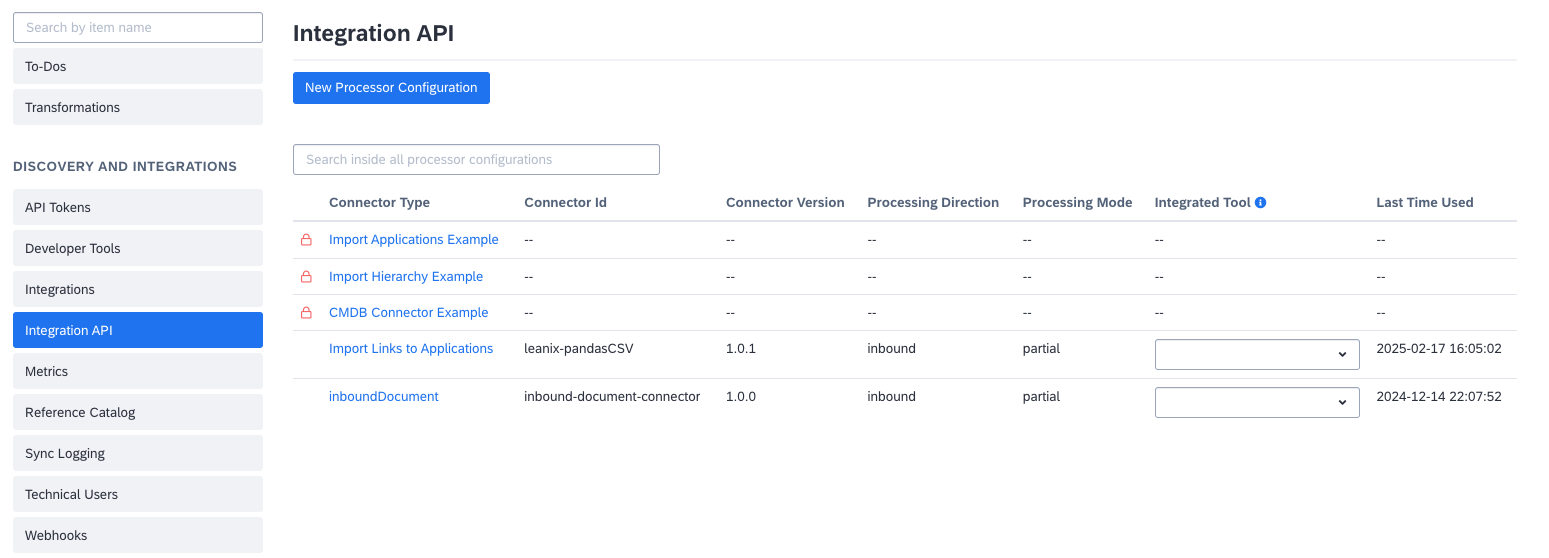
Integration API Section in the Admin Area
Get Started Quickly
Use the UI
While we also have our REST API available, it is highly recommended to setup your processors in the UI before addressing the API.
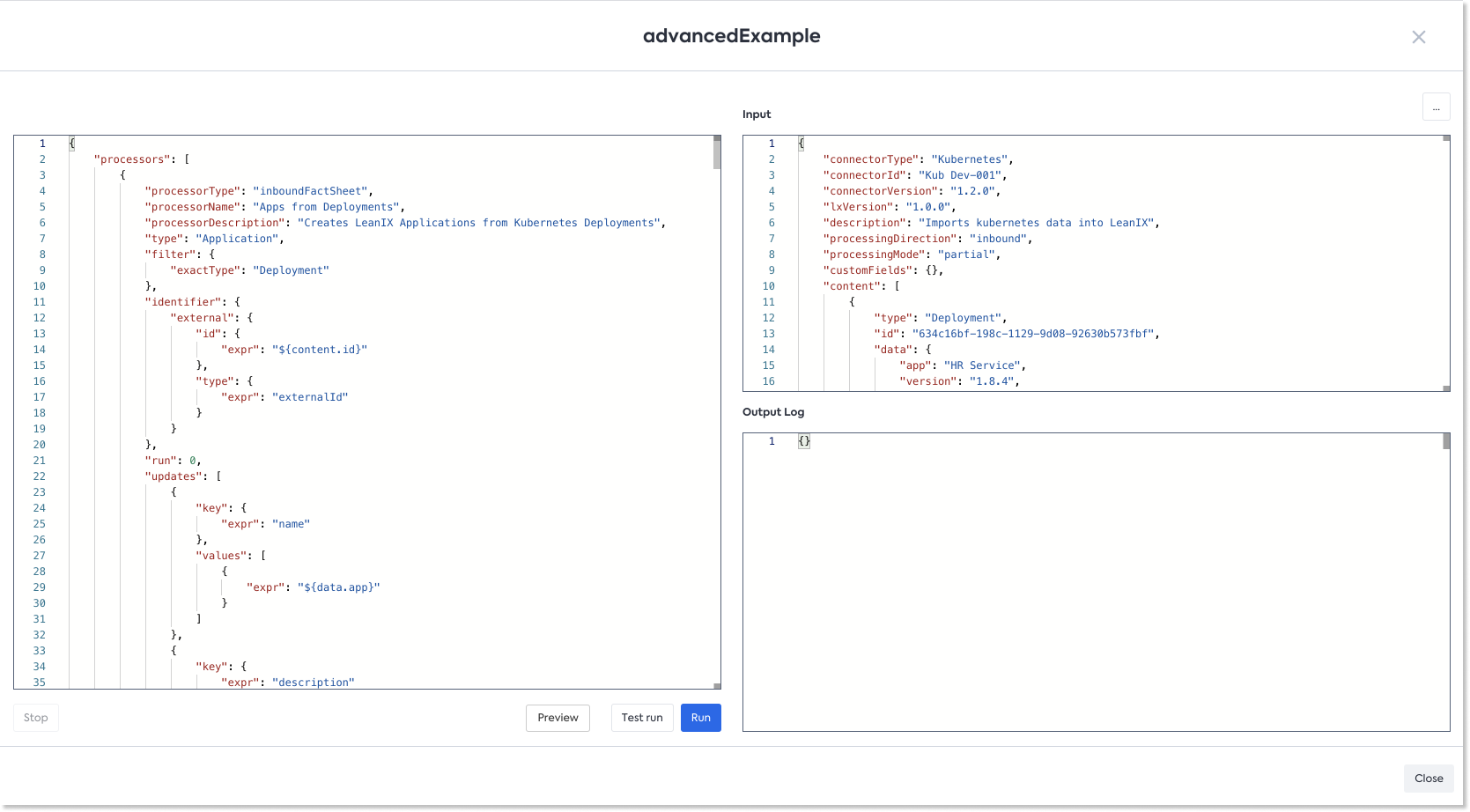
Utilizing the UI allows for quick testing and debugging of processors.
Check Scope Before Firing Test Runs
Test runs on a large workspace can take up a lot of time and unnecessary processing. Setting a scope while doing testing ensures that the testing is quick and does not overload the system.
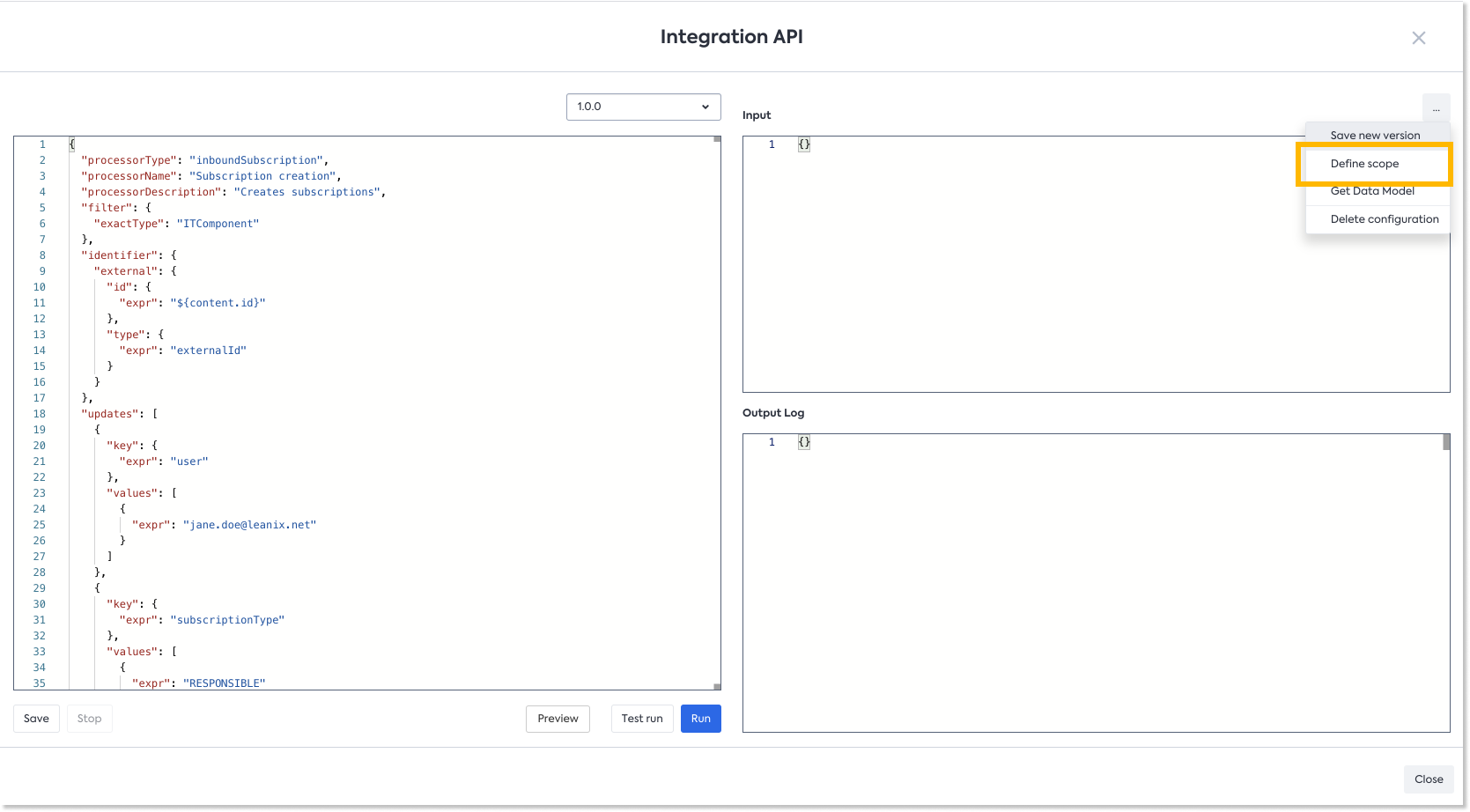
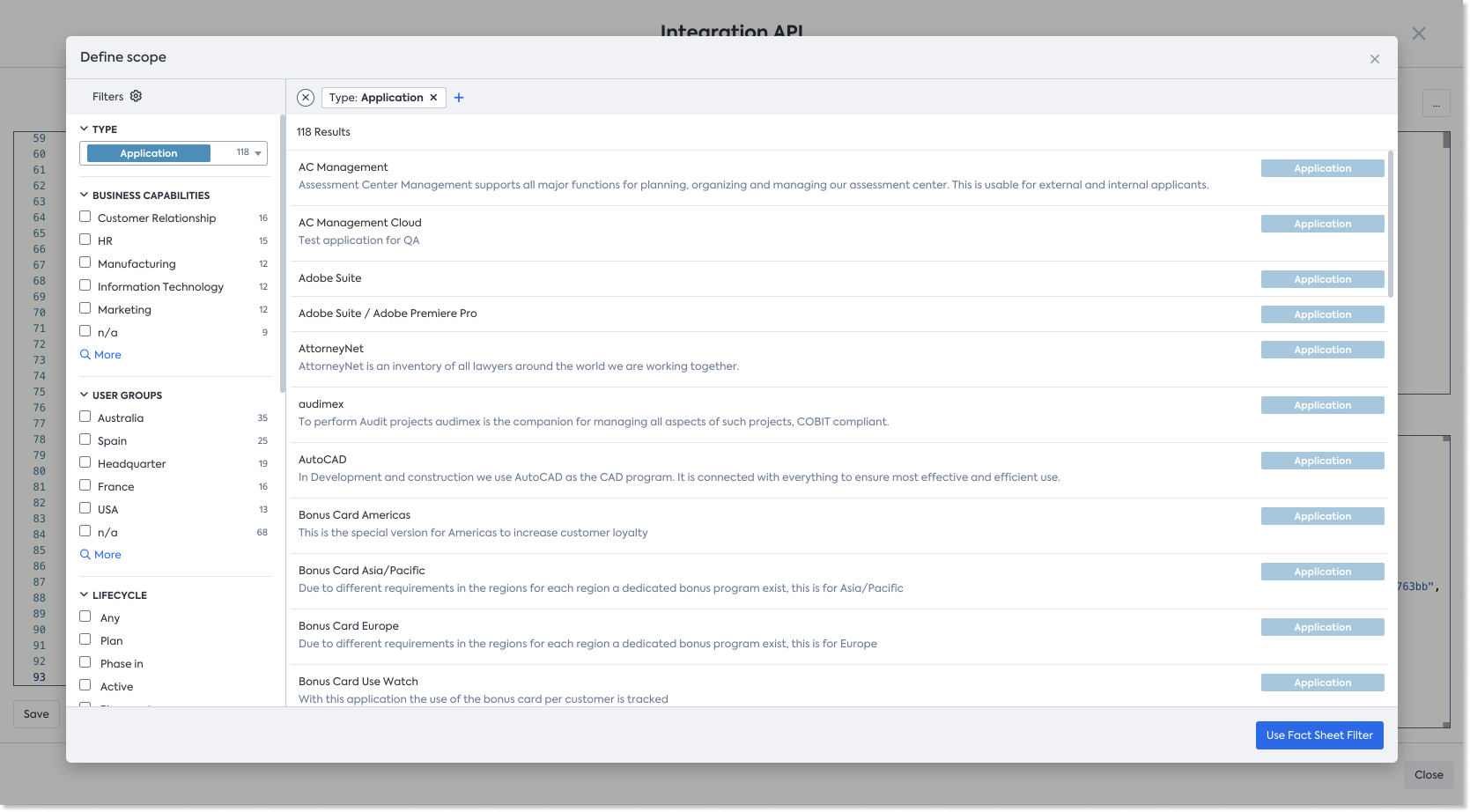
Adhere to Proper Processor Versioning Convention
Integration API Processors should always be versioned using the number.number.number format. (e.g. 1.0.0). Following this convention allows for maintaining versioning support in case there is an update to the processor.
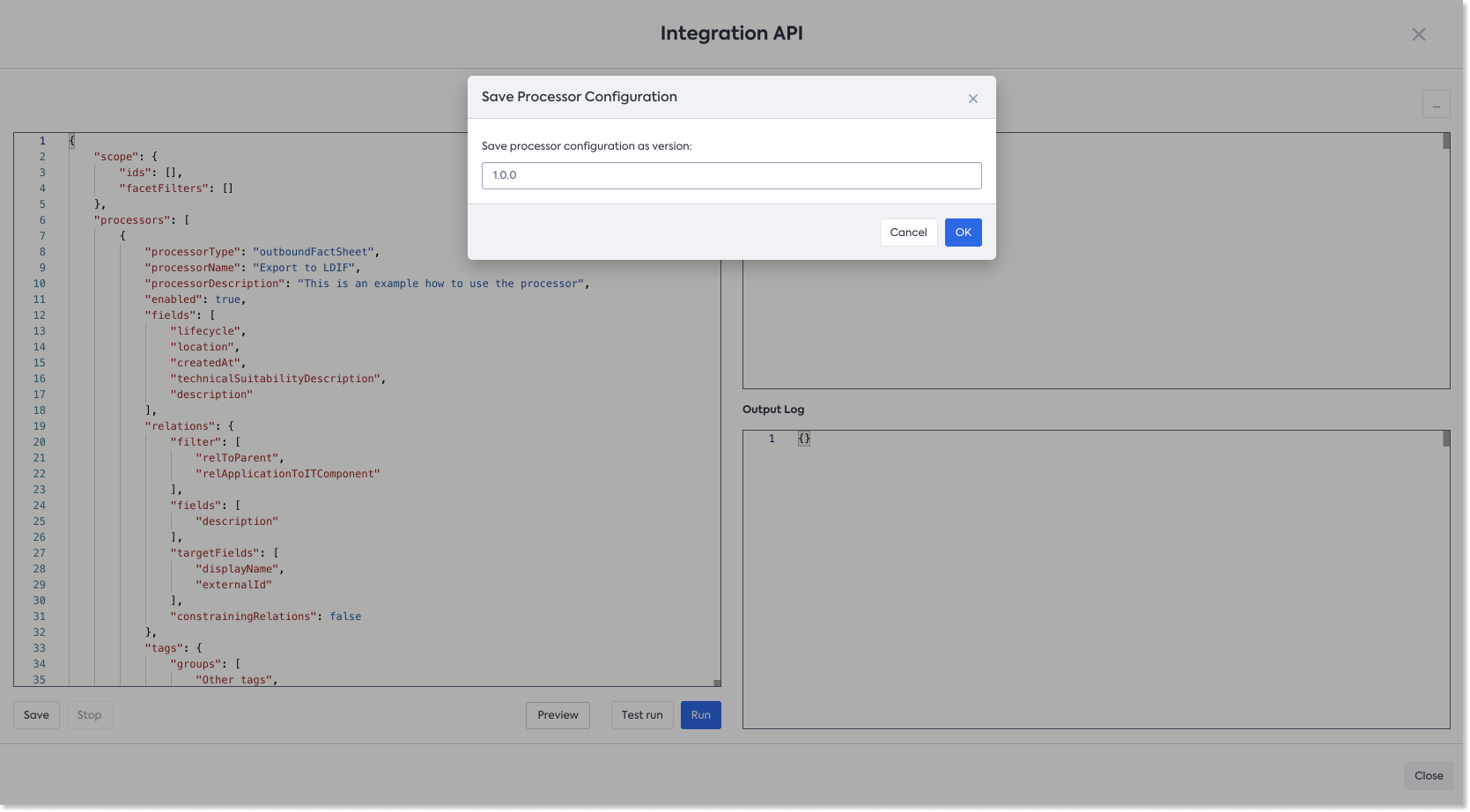
Following the convention allows for version history of the processor to be saved and be accessible from the UI itself.
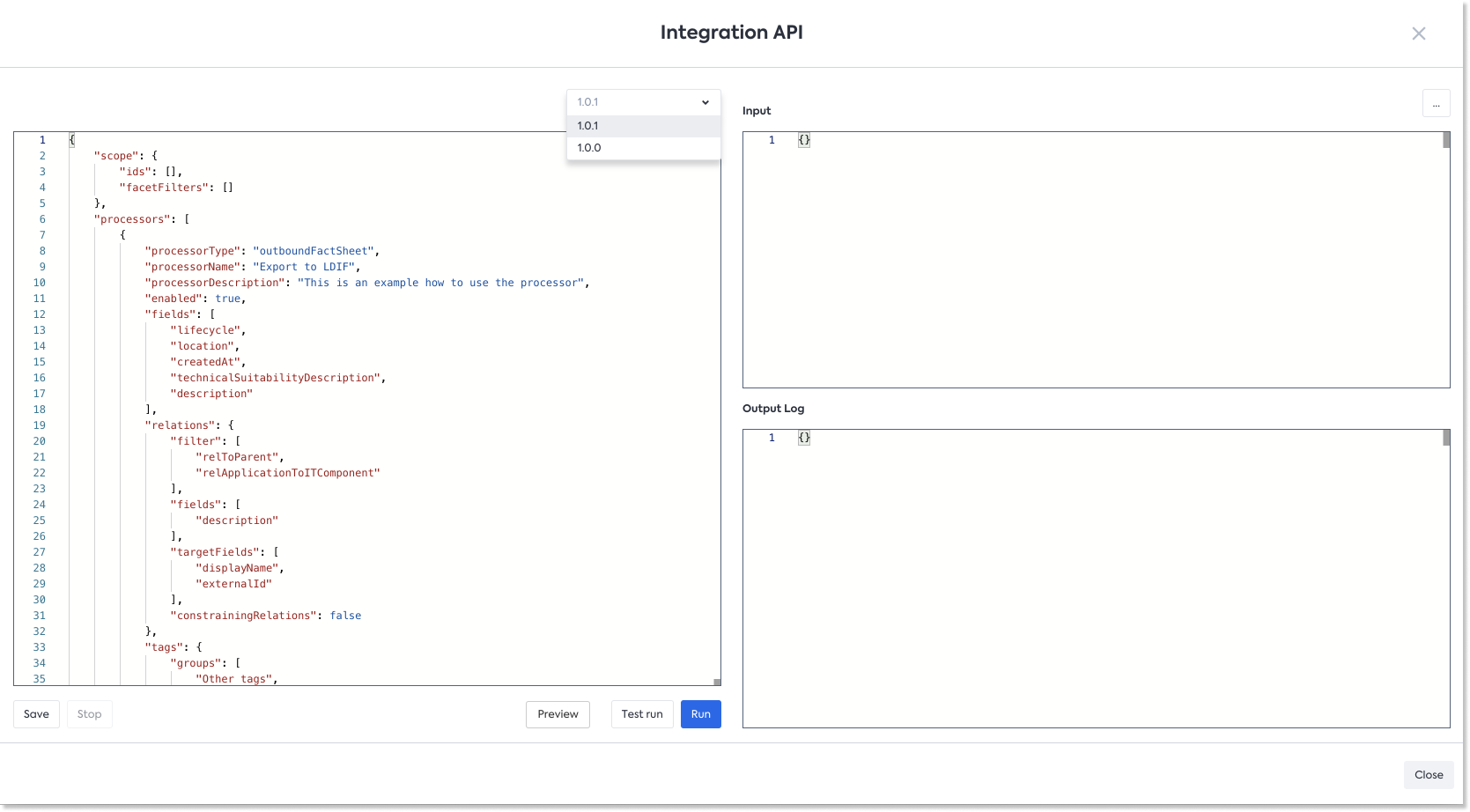
Operate Reliably
Utilize Webhooks
Our tutorial on Send Alerts to Slack and Teams can be used to set up alerts for Integration API runs that occur on a recurring basis.
One way to do this could be to have a separate slack channel wherein successful or unsuccessful runs are sent with a different emoji in their payload. ✅ , ⚠️ etc.

{
"deliveryType": "PUSH",
"id": "",
"identifier": "Integration Statistics to Slack",
"tagSets": [
[
"integrations",
"statistics"
]
],
"createdAt": "2020-06-10T15:17:11.064809Z",
"workspaceId": "[Workspace ID from API Token section",
"userId": "[User ID from API Token Section]",
"targetUrl": "[SLACK TARGET URL]",
"targetMethod": "POST",
"authorizationHeader": "",
"callback": "var payload = delivery.payload;delivery.active = false;var base_url = 'https://eu.leanix.net/WORKSPCENAME/';if((payload.progress == 'FINISHED') && (payload.connectorId == 'ConnectorID-3' || payload.connectorId == 'ConnectorID-1' || payload.connectorId == 'ConnectorID-2')){delivery.active = true;var text = ':SLACK EMOJI: '+'*Workspace:* WORKSPACE_NAME '+ '*Connector Id:* '+payload.connectorId+' *Scope:* '+ payload.scope+' *Connector Direction:* '+ payload.direction+' has *Status:* '+ payload.progress+' and *error count:* '+ payload.errorCount;text += ' *Synclog link :* '+base_url+'/admin/synclog/'+ payload.synchronizationId;}delivery.payload = {text : text}",
"lastDeliveryStatus": 200,
"ignoreError": false,
"maxBatchSize": 512,
"workspaceConstraint": "WORKSPACE",
"active": true,
"errorCount": 0,
"firstTimeDeliveryFailed": null,
"payloadMode": "DEFAULT"
}

Leverage Deletion Scope
Deletion scope can be used to set up automatic deletion when loading data using inbound Data Processors.
For more information, see Auto deletion with inbound processors.
Examples provided can archive Fact Sheets
Executing examples in the section above needs to be done with care. All potentially existing project Fact Sheets in the workspace will be in scope for deletion. To limit, you may want to change the sample that a tag "TEST_PRJ" or similar will be set for the test projects. This tag can be added as filter criteria to the deletion scope definition.
Cover All Edge Cases to Eliminate Warnings and Errors
Whenever value mapping is defined in the processor, it is highly suggested to add a "catch-all" option at the end of the value mapping list. By doing so, warnings that arise from the processor on not finding any matching value from other value mapping list can be removed.
{
"leanixType": "tag",
"fields": [
{
"leanixFieldName": "group",
"inboundPropertyPath": "Process Frequency",
"valueMappings": []
},
{
"leanixFieldName": "name",
"inboundPropertyPath": "${editordata.model.properties[\"meta-processfrequency\"]}",
"valueMappings": [
{
"outputExpression": "High",
"regexMatch": "ci1560953961659160925663"
},
{
"outputExpression": "Medium",
"regexMatch": "ci1560953961659758129772"
},
{
"outputExpression": "Low",
"regexMatch": "ci1560953961659682886651"
},
{
"outputExpression": "None",
"regexMatch": "ci1560953961659123251220"
},
{
"outputExpression": "Other value",
"regexMatch": ".*"
}
]
}
]
}
In the example above, by using the last value mapping of "Other Value", the Integration will not output a warning in the sync log when it does not find any of the matching values defined.
Configuring Automated Nightly Runs
You can configure automated nightly runs for inbound processors. For more information, see Configuring Automated Nightly Runs for Inbound Processors.
